
-
Find the right food for your petTake this quiz to see which food may be the best for your furry friend.Find the right food for your petTake this quiz to see which food may be the best for your furry friend.Health CategoryFeatured products
 Adult Light Large Breed Chicken Meal & Barley Recipe Dog Food
Adult Light Large Breed Chicken Meal & Barley Recipe Dog FoodFewer calories for less active large breed dogs
Shop Now Adult Chicken & Barley Recipe Dog Food
Adult Chicken & Barley Recipe Dog FoodSupports lean muscle and beautiful coat for adult dogs
Shop Now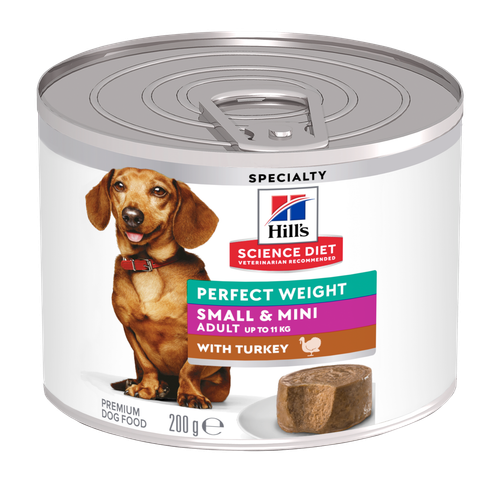 Perfect Weight Adult Small & Mini Dog Mousse with Turkey
Perfect Weight Adult Small & Mini Dog Mousse with TurkeyHill's Science Diet Adult Small & Mini Perfect Weight Dog Food with Turkey is a complete pet food for small breed adult dogs, including those that are less active, neutered or otherwise prone to weight gain.
Shop NowFeatured products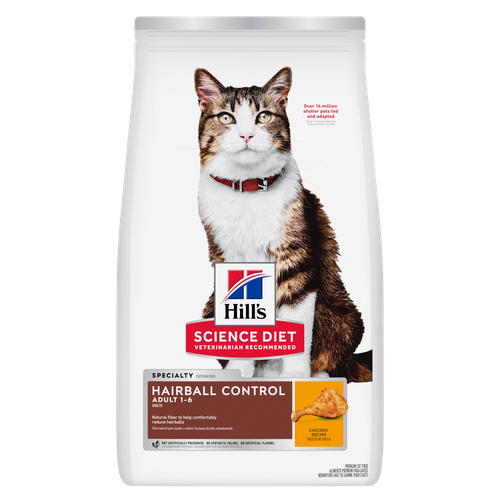 Adult Hairball Control Chicken Recipe Cat Food
Adult Hairball Control Chicken Recipe Cat FoodNatural fibre comfortably reduces hairballs
Shop Now Adult Healthy Cuisine Roasted Chicken & Rice Medley Cat Food
Adult Healthy Cuisine Roasted Chicken & Rice Medley Cat FoodDelicious roasted chicken and rice in a mouthwatering sauce
Shop Now Adult Perfect Digestion Chicken, Barley & Whole Oats Recipe Cat Food
Adult Perfect Digestion Chicken, Barley & Whole Oats Recipe Cat FoodHill's Science Diet's breakthrough nutrition supports ultimate digestive well-being & healthy microbiome
Shop Now -
DogCat
- Cat Tips & Articles
-
Health Category
- Weight
- Skin & Food Sensitivities
- Urinary
- Digestive
- Kidney
- Dental
- Serious Illness
-
Life Stage
- Kitten Nutrition
- Adult Nutrition
Featured articles Tips on How to Store Your Dog or Cat Food Properly
Tips on How to Store Your Dog or Cat Food ProperlyWhere you store your cat and dog food can make a big difference in the quality and freshness once it is opened. Here are some common questions and recommendations for optimal storage for all of Hill’s dry and canned cat and dog food.
Read More Fun Ideas for Kids and Pets This Summer
Fun Ideas for Kids and Pets This SummerOutdoor summer activities with your dog or cat can be fun for kids, too. Learn how they also teach kids responsibility & creates a bond with their pet.
Read More Water
WaterWater is the most important nutrient of all and essential for life. Animals can lose almost all their fat and half their protein and still survive, but if they lose 15% of their water, it will mean death.
Read More -


Once you have talked to your veterinarian and chosen the right Science Diet™ cat food, you're on the right track to giving your kitten the healthiest life possible.
It's important to feed your kitten the right amount of Science Diet™ cat food at proper intervals, but that can be tricky, as feeding requirements vary greatly from one kitten to another. Feeding guides on the food can or bag are just a starting point. It's critical to your kitten's health that her physical condition is monitored regularly and the feeding amount is adjusted as needed.
Ask your veterinarian which of these three feeding methods is best for your kitten:
Free Choice: Food is available to your kitten at all times. Time-Limited Feeding: Food is available to your kitten for a limited time. Meal Feeding: A measured amount of food is available to your kitten at specific meal times each day.


Tasty Tips
To help your kitten grow up healthy, we recommend following the simple steps in this cycle:
Weigh your kitten.
Feed her based on feeding guides and veterinary recommendations.
Evaluate your kitten's physical condition using our body condition scoring system every two to three weeks for the first six months.
Adjust the amount you feed accordingly.
Repeat.
After the first six months, we suggest that you or your veterinarian evaluate your kitten's physical condition every few months. For some kittens, your veterinarian may suggest more frequent evaluations.


One of our staff authors prepared this article for you
Related products

Hill's Science Diet's breakthrough nutrition supports ultimate digestive well-being & healthy microbiome

Delicious roasted chicken and rice in a mouthwatering sauce

Natural fibre comfortably reduces hairballs

Healthy digestion for easy litter box clean-up
Related articles
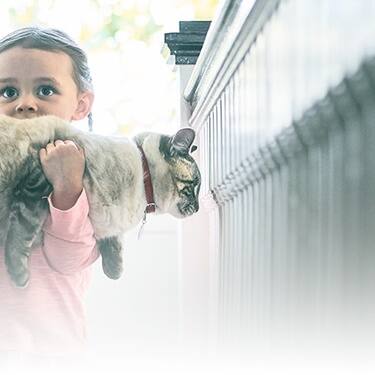
Provide the best possible treatment for cats with sensitive skin by spotting the signs, knowing the causes, and understanding the remedies. Learn more now.
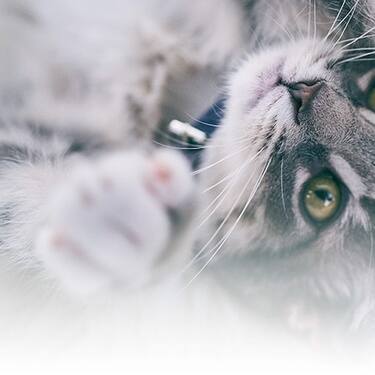
Obesity affects more than 30 percent of cats in America. Learn how you can properly feed and exercise your cat to improve its weight management.
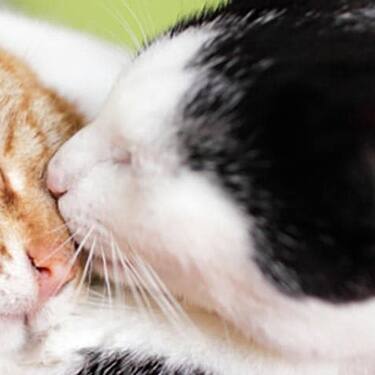
Being overweight puts a cat at risk for developing many serious health issues. Weight gain indicates an increase in body fat and usually results when your cat eats too much and exercises too little.
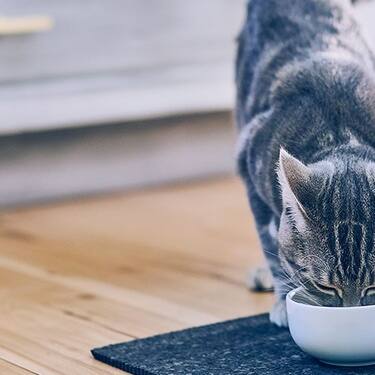
Understand the symptoms of a chronic upset stomach in your cat, and learn how to help sooth their discomfort.

Put your cat on a diet without them knowing
Our low calorie formula helps you control your cat's weight. It's packed with high-quality protein for building lean muscles, and made with purposeful ingredients for a flavorful, nutritious meal. Clinically proven antioxidants, Vitamin C+E, help promote a healthy immune system.
Put your cat on a diet without them knowing
Our low calorie formula helps you control your cat's weight. It's packed with high-quality protein for building lean muscles, and made with purposeful ingredients for a flavorful, nutritious meal. Clinically proven antioxidants, Vitamin C+E, help promote a healthy immune system.

